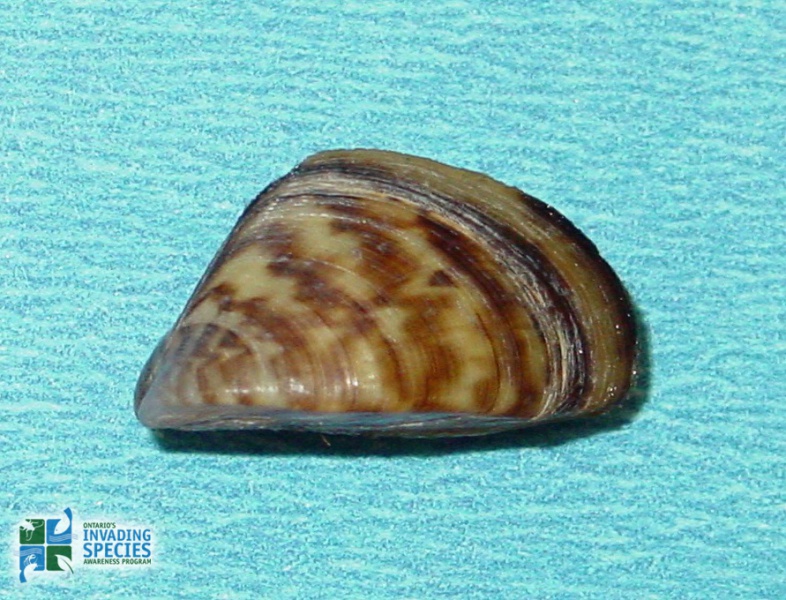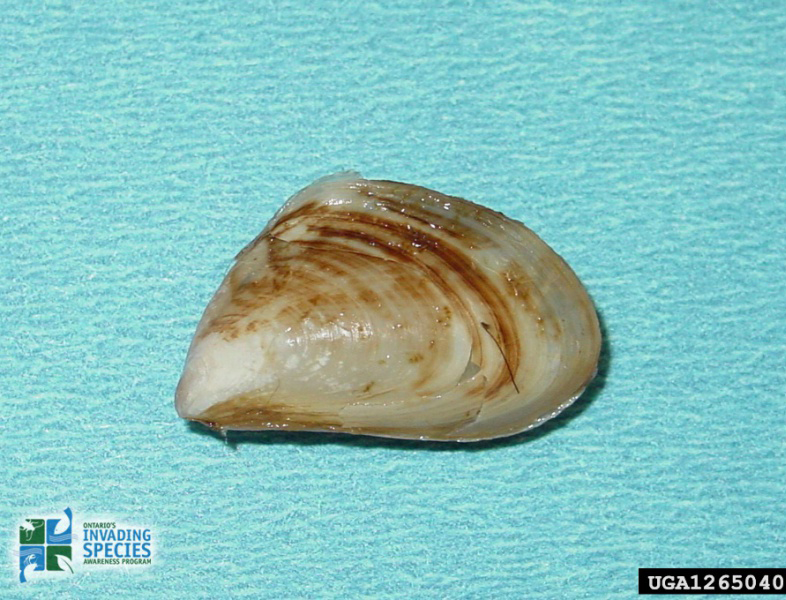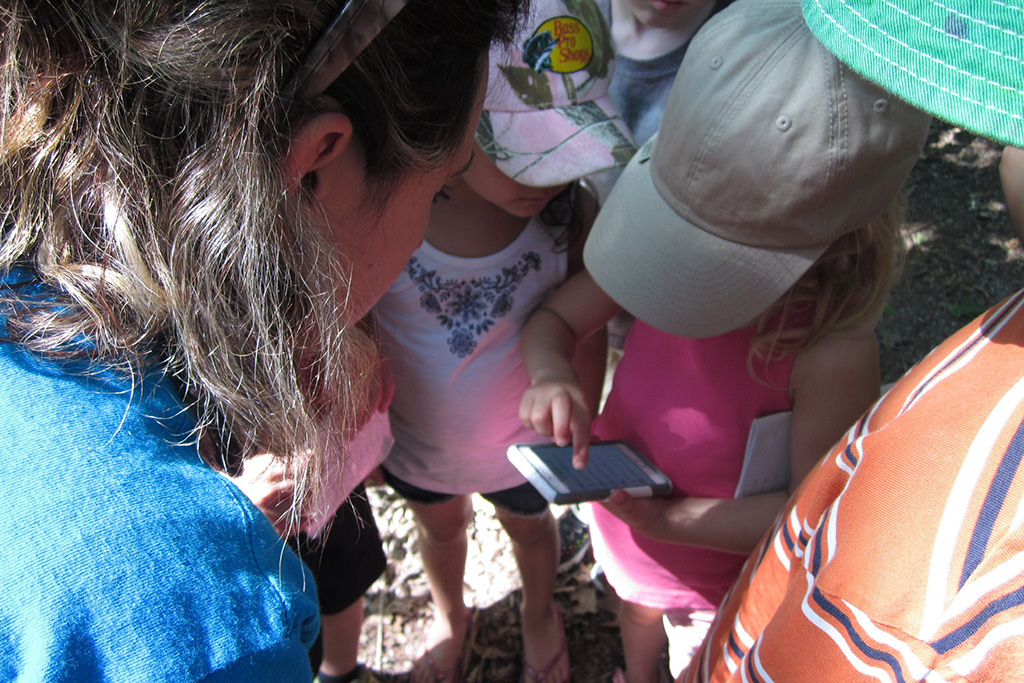Background
Zebra and quagga mussels are freshwater bivalves native to the Black Sea region of Eurasia. Both species were believed to have been introduced in the late 1980’s by ballast water from transoceanic ships carrying veligers (larvae), juveniles or adult mussels. Zebra and quagga mussels are capable of heavily colonizing hard and soft surfaces, including, docks, boats, break walls and beaches. These colonizations are also responsible for clogging intake structures in power stations and water treatment plants.
Range
Zebra mussels are found throughout all the Great Lakes, Lake St. Clair and the Mississippi river watershed. Unlike the zebra mussel, quagga mussels are found to be limited to the southern Great Lakes; Lake Ontario, Michigan, Huron and Erie. They have also been found in the St. Lawrence River and north to Quebec city.
Impacts of Zebra and Quagga Mussels
- Zebra and quagga mussels filter water to the point where food sources such as plankton are removed, altering food webs. This also causes clearer water, allowing sunlight to penetrate deeper, increasing growth of aquatic vegetation.
- Impact fish and wildlife by increasing toxic algal blooms.
- Large colonies affect spawning areas, potentially impacting the survival of fish eggs.
- Affects recreational activities by cutting swimmers feet as a result of their sharp shell.
How to Identify
INVASIVE
Zebra Mussel
(Dreissena polymorpha)
Details
- Average 2-2.5 cm, reaching up to 4 cm long
- Sits flat on its underside.
- Triangular in shape.
- Black or brown with white to yellow zigzagged patterns.
- Color patterns can vary.
INVASIVE
Quagga Mussel
(Dreissena bugensis)
Details
- Average 2 cm, reaching up to 3 cm long
- Doesn’t sit flat.
- Round in shape.
- Dark concentric rings on shell.
- Pale color near hinge.
What You Can Do
- Learn how to identify zebra and quagga mussels and how to prevent accidentally spreading these invasive species.
- Inspect your boat, trailer and equipment after each use. Remove all plants, animals and mud before moving to a new water body.
- Drain water from motor, live well, bilge and transom wells while on land.
- Clean all recreational equipment with a high pressure wash, hot water, OR let it dry in the sun for at least 5 days.
- If you find Zebra or Quagga Mussels or other invasive species in the wild, please contact the toll-free Invading Species Hotline at 1-800-563-7711 or visit EDDMapS to report a sighting.
Resource Files
Gallery
OFAH/MNR Invading Species Awareness Program. (2021). Zebra and Quagga Mussels. Retrieved from: www.invadingspecies.com.
This factsheet may be reproduced for non-commercial purposes.
Header photo by Dave Britton



